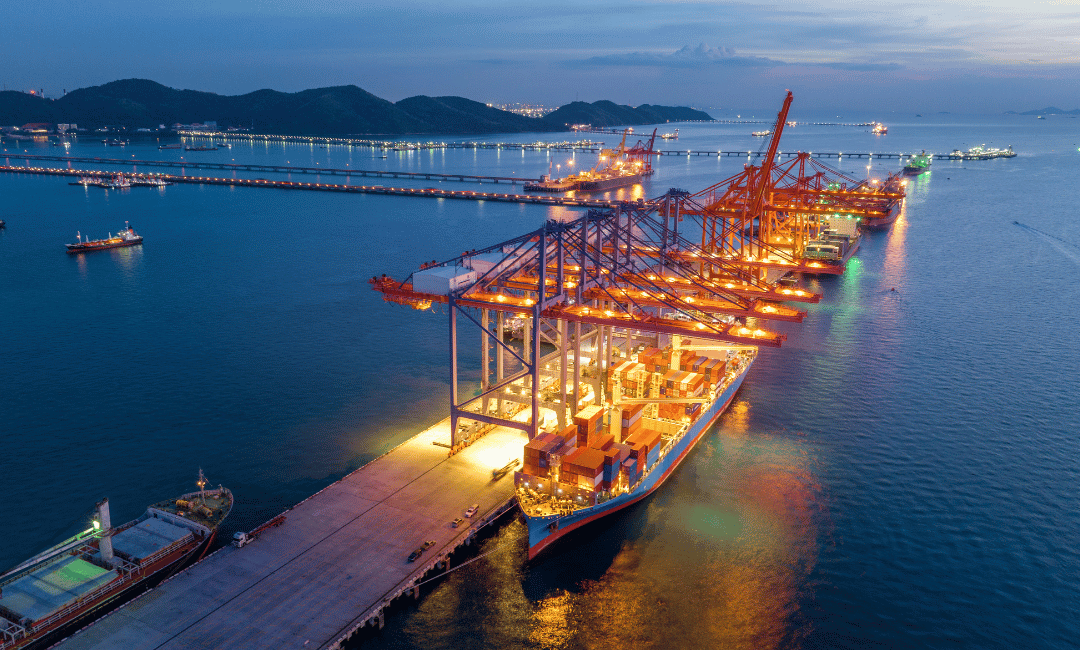Maritime logistics are vital to international trade because they facilitate the movement of commodities across seas, linking markets and bolstering economies all over the world. Effectively handling maritime freight is crucial for companies trying to cut expenses, guarantee on-time delivery, and simplify processes. If you’re seeking reliable partners in maritime shipping, look no further than NORTH SEA AGENCY. With years of expertise and a global network of professionals devoted to effective marine logistics, they provide top-notch shipping solutions. For flawless maritime freight management catered to your company’s requirements, rely on NORTH SEA Agency. In this comprehensive guide, we will talk about maritime logistics for managing ocean freight efficiently.
Understanding Maritime Logistics:
Maritime logistics entails the making plans, implementation, and management of the motion of goods via sea routes. This complex technique includes handling shipping schedules, dealing with documentation, ensuring shipment protection, and coordinating with diverse stakeholders which includes delivery strains, port government, and freight forwarders. Due to the full-size distances concerned, maritime shipping requires meticulous planning to avoid delays and unexpected charges. Businesses should also navigate global rules and price lists, which can in addition complicate the logistics manner. An efficient maritime logistics system can enhance price-effectiveness and delivery times, making it a critical part of the supply chain.
Choosing the Right Shipping Carrier:
Selecting the right transport service is one of the maximum vital decisions in maritime logistics. A dependable service ensures that your shipment is dealt with with care and brought on time. It is vital to evaluate companies based on their popularity, the variety of services supplied, and their insurance of global ports. Price is another thing, but opting for the most inexpensive service can now and then lead to hidden fees or delays. Businesses need to not forget to partner with vendors who have a song report of strong customer support, real-time tracking structures, and bendy maritime delivery options. This reduces the hazard of disruptions and enhances universal efficiency in ocean freight management.
Optimizing Freight Costs:
Ocean freight prices can substantially impact a business’s bottom line. Managing those costs includes more than simply negotiating nice prices with delivery providers. Companies must be conscious of optimizing box utilization, consolidating shipments whilst viable, and accurately forecasting demand to avoid overstocking or emergency shipments. Moreover, being attentive to gasoline surcharges, coping with costs, and port costs can assist minimize surprising costs. By studying those variables, organizations can make informed selections that lessen prices while maintaining excessive service stages. Proper making plans and price control cause more predictable budgets and less economic surprises in maritime logistics.
Leveraging Technology for Better Efficiency:
Technology is revolutionizing maritime logistics, supplying answers to beautify visibility and performance, and managing the maritime shipping technique. Freight control structures (FMS) and digital structures permit agencies to tune shipments in real time, screen stock, and manipulate documentation electronically. This equipment can substantially reduce administrative obligations, minimize human blunders, and enhance conversation with stakeholders across the supply chain. Additionally, automation in areas like cargo managing and port operations quickens procedures and decreases bottlenecks. By integrating technology into their maritime logistics approach, companies can live competitively and ensure smoother operations.
Ensuring Compliance with International Regulations:
Navigating global transport rules is an important element of maritime logistics. Countries have exceptional policies concerning import and export, and failure to conform to those rules can result in delays, fines, or maybe the seizure of goods. It’s critical to live up to date on rules like the international maritime organization’s sulfur emissions requirements or the international convention for the safety of life at sea. Businesses need to also paint carefully with customs brokers and freight forwarders who concentrate on navigating these complex requirements. Staying compliant ensures easy transit via global ports and reduces the threat of expensive disruptions in maritime shipping.
Building Strong Relationships with Key Stakeholders:
In maritime logistics, constructing robust relationships with stakeholders along with shipping strains, freight forwarders, and port authorities is prime to ensuring the green motion of products. Trust and open conversation with these companions help groups navigate challenges like port congestion, converting regulations, and delivery chain disruptions. Regular verbal exchange with stakeholders ensures that everyone is on the same page concerning schedules, shipment conditions, and any ability troubles that can arise in the course of transit. By fostering these relationships, companies can enhance operational reliability and streamline the maritime shipping system.
In the closing:
Efficient management of maritime logistics requires careful planning, the right partnerships, and a strong understanding of the global maritime shipping landscape. Businesses may simplify their ocean freight procedures and guarantee seamless, economical operations by concentrating on selecting dependable carriers, cutting expenses, using technology, guaranteeing compliance, and cultivating strong stakeholder connections. Understanding marine logistics is more crucial than ever for maintaining competitiveness and providing value to clients in today’s fast-paced global market.

